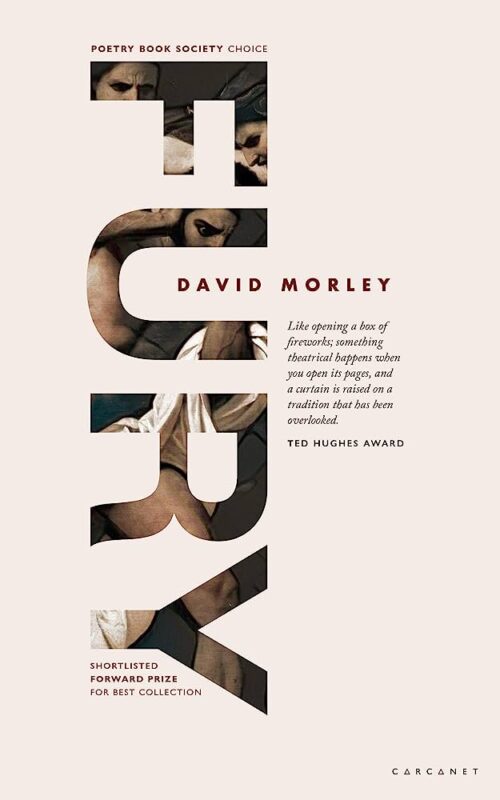REVIEW: DAVID MORLEY’S ‘FURY’
By Stella Backhouse

Fury, David Morley’s 2020 collection, is a place where language is put to the test – specifically, the test of how important to the achievement of meaning is precise understanding. One way Morley explores this is through liberal use of Romani (the Romany language) throughout the book; but in an interview given at the time it was published, he says that although he provides a glossary to aid non-Romani speakers, he would prefer them not to use it, but to rely instead on the sound or context of Romani words to intuit meaning.
As a Shropshire native, it’s perhaps unsurprising that my favourite exemplar of this approach is ‘Like Wind Through Woods In Riot’, Morley’s Anglo-Romani rendering of A. E. Housman’s ‘On Wenlock Edge’. In a single line he combines the stiffness of the National Trust with a knowing appreciation of both joyful English vernacular and a writhing, straining Romani description of wind: “Phúrdel e balwal bonkers ándo National Trust wêrshorró” (“It is blowing bonkers through the National Trust copse”). More broadly, the very act of translating a poem so quintessentially English into another language throws down a challenge to conventional narratives around ownership of land, ownership of nature.
As well as incorporating words with which most readers will be unfamiliar, Morley is also interested in conveyance of meaning through mimicry, stammering, the poetry of names and of non-human nature sounds such as birdsong. The scattered sonnet series ‘Lyrebird’ takes the form of a conversation between two voices, identities unknown – but to call them Poetry and Poet would not be too outrageous, I hope – who attempt to capture the interface between nature and art: “My vow divines the jangled language of migrating geese./My vow captures the colour Kahlo desired of Diego de Rivera./My vow meshes and rings winged verbs in mist-nets.”
The meeting-place between different narratives is important because it is here that formal language may become less important than non-verbal or non-standard language or than an older, universal wisdom of sound. Morley has a number of poems about the intersections between Romany and non-Romany (or Gentile) worlds, including ‘Romany Wounds Me’ in which his anger is directed at the firmness of boundaries erected to exclude the Roma by the Gentile side: “At Kenilworth fair, with its tailbacks to Longbridge roundabout,/vardos bottle-necked behind ponies from Pershore,/rocks rammed on verges of all the villages between/by Neighbourhood Watches with the policeman’s nod”. The irony, in a poem that also laments the triumph of hard borders heralded by Brexit, is that the itinerant, agricultural Romany way of life is actually a living connection to an older England that many leave-voters said they wanted to return to.
Ironic in a different way, given that Brexit at the time was frequently characterised as ‘what happens when the previously silenced finally get to speak’, the other sound that echoes through this collection is the sound of silence. Silence is revealed in a number of facets including political: the Romany tradition of not speaking about the Romany Holocaust, for example, is encapsulated into a single death in the moving pantoum ‘After the Death of the Gypsy Matriarch’. The opposite of onomatopoeia, simply to speak the word ‘silence’ is to shatter the concept it’s meant to represent. But here, the down-beat repetition of “in mirnomos” (“in silence”) at the end of lines describing Romany death-rituals – together, perhaps, with the susurrating proximity of ‘mirnomos’ to the English word ‘murmuring’ – thickens into something whose very audibility is an augury of silence.
The idea of people and things having no name is also a form of quantifiable silence. Innominate Tarn is “no name/as a name, a glittering alphabet/of haiku in water’s Japanese form”. Conversely, the ‘Fury’ of the collection’s title refers in part to the boxing champion Tyson Fury, who is of Romany descent and whose name fittingly personifies the emotions, often the result of racism, that impel him into the ring. Fury is a collection about how language exists in silence, in the silenced, how silence and wordlessness are themselves forms of language. At a deep level, we all understand them. They can bring us together if we allow them to.
Fury is available to purchase online, direct from publisher Carcanet Press, as well as other bookshops and retailers.
